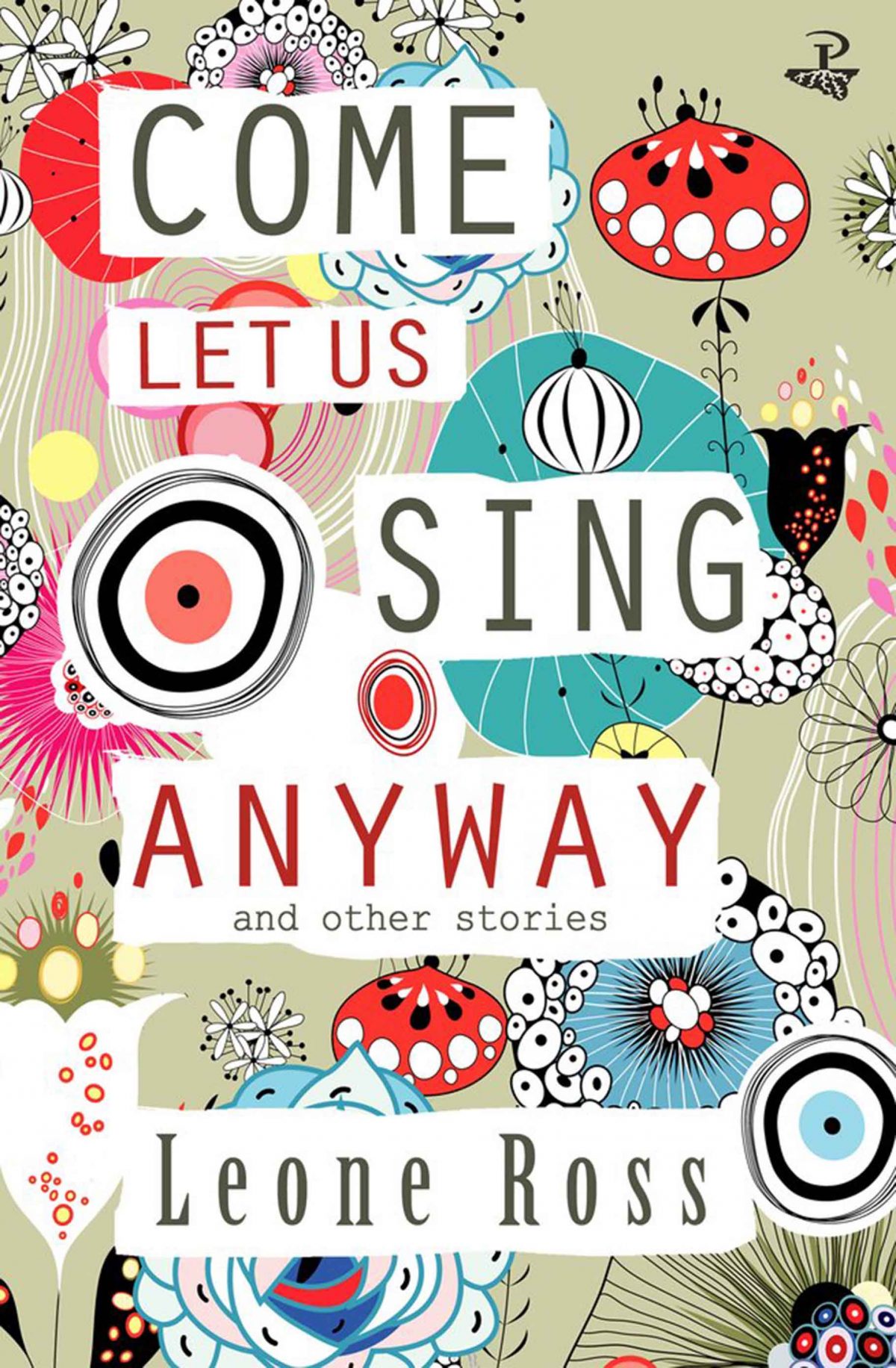By Nikita Blair
Last July, I had the pleasure of reading and reviewing This One Sky Day/Popisho by Leone Ross. I love this book, and its masterful medley of magic, mystery and melancholy still lives in my head rent free to this day. Just last week, on International Women’s Day, I was delighted to learn that the novel was longlisted for the Women’s Prize for Fiction. Ross certainly deserves the accolades and I wish her the best of luck in the competition.
About a week after writing the Popisho review, I attended a veranda chat with Ross, hosted by Rebel Women Lit in Jamaica. There, I learned about Ross’s short story collection, Come Let Us Sing Anyway. In a short section of the veranda chat, Ross confirmed that her story “The Mullerian Eminence” was the precursor to a pivotal scene in Popisho, and there was a brief comparative discussion about the story within the novel’s context. Curious, I decided to get my own copy of the collection, mostly because of that one story, but also because I was curious about Ross’s shortform work.

Come Let Us Sing Anyway is a collection of short stories which mostly centre Jamaican women or women of Jamaican ancestry. The collection undulates through both genre and theme as Ross uses realism, magical realism, science fiction and poetry to write about women’s relationships (platonic, familial, romantic, and erotic), beauty standards, racial identity, motherhood, queerness and homophobia, and childhood innocence. She dives into the darkness of the past, dreams of wholesome futures, and challenges the realities of our present through 23 beautiful entries.
Love
Most of the stories in this collection are about love. Some are about pure joy, others bitter-sweet or deeply sad. Her stories “Drag”, “Art for ****’s Sake” and “And You Know This” are the most joyful love stories of the collection. “Drag” and “Art for ****’s Sake” centre the beauty of women’s erotic experiences and adventures with their partners and the joy they get from being explorative and creative.
“And You Know This”, one of two science fiction stories in the collection, is about life-long friendship and elderly love between two women as they take a last ride through Jamaica.
“Breathing”, “The Woman Who Lived in a Restaurant” and “The Heart Has No Bones” are the bitter-sweet stories in the collection. “Breathing” begins as a hopeful tale of second chances, when a man’s wife appears on his doorstep seventy-six days after passing away. It turns out that she is one of thousands of people who came back from the dead following a global resurrection event, and he tries his best to take advantage of the extra time they have together.
“The Woman Who Lived in a Restaurant” is about a bizarre love triangle between a chef, the woman he loves, and the jealous restaurant he owns and loves. Who should sacrifice their career and who should sacrifice their love, the story asks? The restaurant decides.
Lastly, “The Heart Has No Bones” is about a foreign surveillance specialist working at an embassy in Jamaica who falls in love with an activist he’s tasked with monitoring. He soon finds out that loving from a distance is one of the hardest things he can do.
Finally, there are the sad stories about love, most of which dealt with infidelity. In “Love Silk Food”, the opening story of the collection, Ms Neecy Brown has to endure the consequences of her husband’s infidelity. The signs that he’s falling in love with someone else are all around her, making their wallpaper sticky, soaking through the calendar and turning all of her food to mush. As she tries to disassociate, she ends up on an unfulfilling adventure along her train route with a fellow Jamaican.
“Velvet Man” is one of my favorite stories in the collection. In it, a recent divorcee is doing her best to maintain the façade of a well put-together adult while battling loneliness and depression. When the Velvet Man comes to her and asks what he can do for her, she doesn’t expect him to take her requests seriously, until he helps to give her a fresh start and put her back on her feet.
Lastly, “What He Is” is a flash-fiction story about the last few moments of a woman’s life as she walks through a market in a district her last lover convinced her to move to before abandoning her. Her rage about the abandonment, isolation and new debt blinds her to the dangers around her.
Pain
Not all of the stories about women’s sexual experiences in this book are happy ones. In fact, Ross uses some of these stories to talk about sexual abuse quite pointedly, despite packaging them amid gorgeous imagery and wordcraft.
Her flash-short “Phone Call to a London Rape Crisis Centre” begins with an immediate juxtaposition of its title, opening so wholesomely and cheerfully that one can almost be fooled into thinking that the protagonist is reminiscing about finding their soulmate. That is until you reach the end of the story, where the title and the protagonist’s identity combine for a devastating effect: showing the reader the insidious nature of child grooming.
“The Mullerian Eminence” also deals with sexual assault. What made this story special was that while the story was about women, the protagonist is a man. The story opens with a direct quote from Henry Gray’s anatomy textbook, in which he states that the Mullerian Eminence – the fetal structure that grows into the testes in males and the hymen in females – has no function in adult women. The entire story then subverts this quote when Charu Deol, a janitor, begins to find fallen hymens in his various places of work. When he picks them up, he finds that each hymen is a receptacle for its owner’s sexual experiences, and just touching them bombards him with their stories and emotions. As days pass and he finds more, he realizes an terrifying truth: one third of them hold a history of sexual abuse. He tries to take matters into his own hands, begging other men to be more mindful of their actions. But he is a poor immigrant, and the stories are driving him mad. Despite his best efforts, he’s ignored.
Beauty
There are two stories in the collection that dealt with the consequences of unrealistic beauty standards set for women, and the ways the beauty industry exploits its workers.
“Roll it” is another of my favourite stories from the collection because it examines the dark side of the modeling industry. In it, a nameless model is preparing for the final performance of her career: a folklore themed fashion show organized by her designer husband. As her final walk nears, she remembers her history, but not her name. As she watches the other models and reflects on her past, we learn the sad truth about her circumstances. Her beauty should have been a gateway to independence, but instead she’s constantly exploited and hurt.
“Breakfast time” is Ross’s exploration of the absurd consequences of fatphobia on otherwise healthy, ordinary women. In this story, a woman named Tina is recovering in hospital from bariatric surgery. She hopes that with a smaller stomach and an extreme limit on her food intake, she will be able to lose the stubborn belly fat that has plagued her throughout her life. Her recovery seems to be going well until she has an unexpected psychological reaction when offered her first solid food post-op.
Outliers
There are three stories that don’t fit neatly into the broad categories above: “President Daisy”, “Covenant” and “Mudman”.
“President Daisy” is a lovely story about Mary Ezmereleena Brown. Her Aunt Greenie has sent her on her own to catch a train from Kingston to Montego Bay to go live with her uncle Barney. She’s terrified to take the trip alone because of the duppy stories her cousin told her before she left, and her own uncertainty about what life will be like with her uncle. Just when she thinks that she’ll have to go on the trip alone, an eccentric, lanky man calling himself President Daisy sits beside her and accompanies her throughout her journey. It all goes well until one of the passengers attacks Daisy, confusing and frightening Ezmereleena. As adult readers, we understand that it was a homophobic attack, but through the eyes of a child, the bigotry looks both absurd and unwarranted, especially when Daity’s only intention is to make sure Ezmereleena gets to her destination safely.
“Mudman” is about a father’s love for his son and the lengths he would go to make sure he was happy and comfortable. In this story, Matthew is a kind and gentle soul who migrated from Jamaica to live in the UK. There, he settles and marries Leila and they have twin children, Suzan and David. When the children are eight years old, they go to their first birthday party. The host promised Matthew that she would drive them home once the party is over, but something goes wrong, and the children are forced to walk home by themselves. On the way, David is kidnapped and in the aftermath of his disappearance, the family begins to fall apart. Matthew slowly begins blaming himself for the tragedy and tries to change the future to correct the past, which complicates his family life further when David finally finds his way home.
Lastly, “Covenant” is the scariest story in the collection. It’s about a woman named Sarah who has always struggled to fit in and be seen as an individual. When she was a child and adolescent, she developed a delinquent streak in an attempt to get her father’s full attention and to shake him out of the idealized, stereotyped perspectives on femininity that he tries to project onto her, becoming more sadistic and twisted in the process. As an adult, she tries to curb her behaviour and selttle into a relationship with her husband Abe. All goes well until they try to have a child, discover that Sarah is infertile, and ask their maid Hagar to be their surrogate. Hagar’s pregnancy and Abe’s contentment and satisfaction with the situation triggers a resurgence of Sarah’s delinquency; motherhood makes it worse. Just when Sarah thinks she cannot take it anymore, she’s approached by an organization called The Covenant, and finds an ominous kind of peace within a like-minded community. This retelling of the biblical story of Abraham’s tests is a chilling, modern twist on the original tale that will leave you spooked for days.
Conclusion
Come Let Us Sing Anyway is a gorgeous collection of short stories in which Ross flexes her range and style in genre, form and theme. I especially loved the way she played with language to create pockets of magic across each story, coaxing her readers in and making them laugh, cry, shudder, and balk. Her work is magnificent, and I look forward to seeing more shorts from her in the future, and wish her the best in the Women’s Prize competition. She’s a phenomenal woman and creator, and she deserves her flowers.
My rating:
I’d like to give special to Alex Brown of Tor.com who assisted me with structuring this review.
Do you want more speculative written by women? Here are my suggestions:
Flowers for the Sea by Zin E. Rocklyn
Gods of Jade and Shadow by Silvia Moreno-Garcia
Priory of the Orange Tree by Samantha Shannon
The Murmur of Bees by Sofía Segovia
A Song Below Water by Bethany C. Morrow


